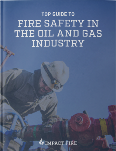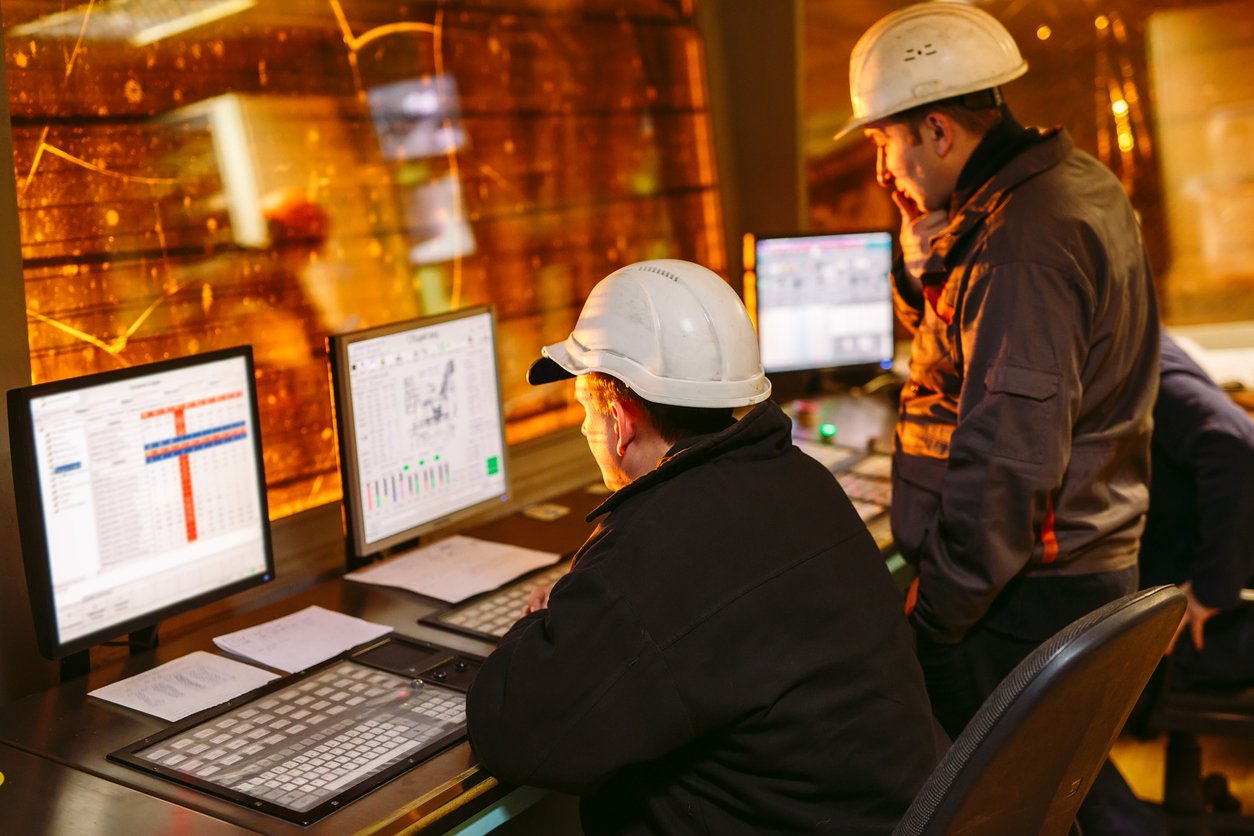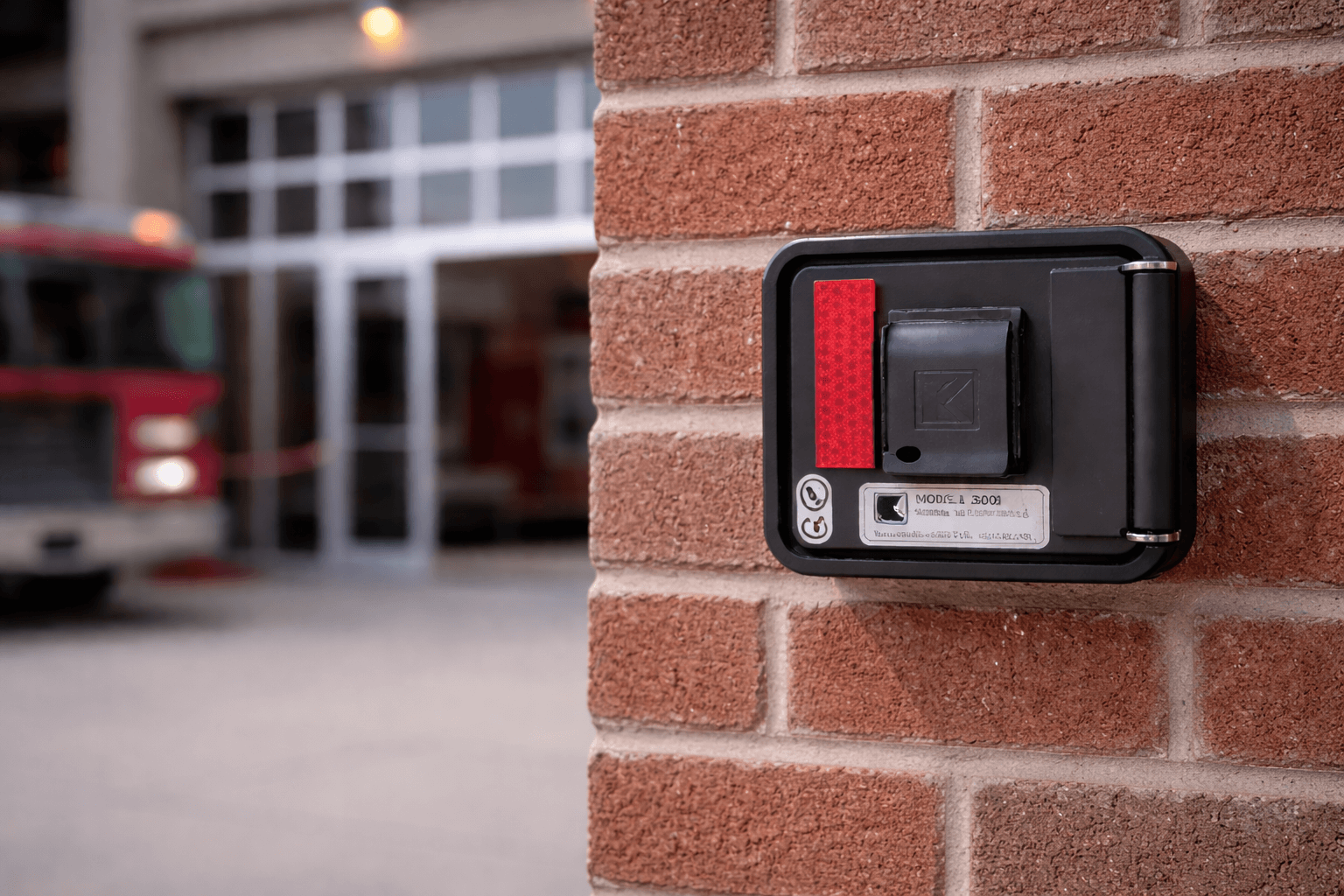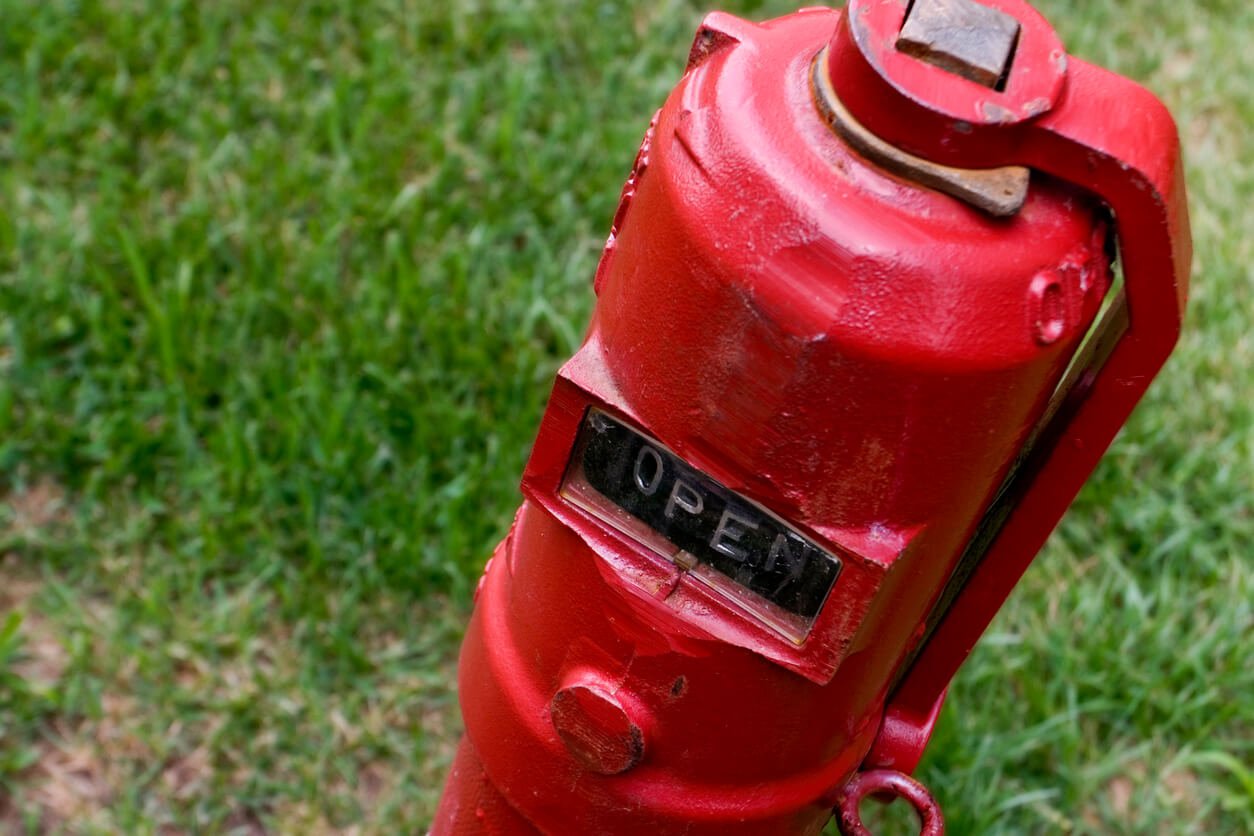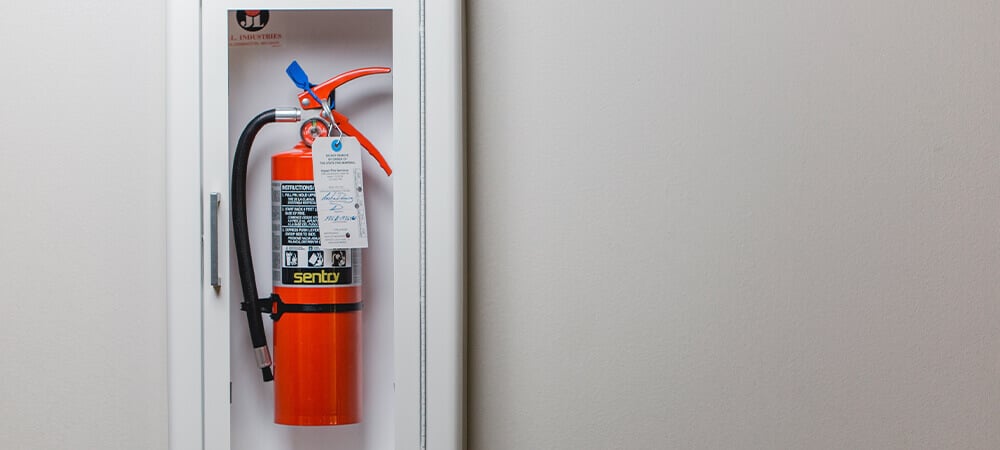What are the Fire and Life Safety Systems Needed in Industrial and Energy Facilities?
- Passive fire protection
- Fire alarm systems
- Portable Fire extinguishers
- Fire sprinkler and fire pump systems
- Special hazard fire suppression systems
- Preventative maintenance and real-time monitoring systems
Businesses in the industrial and energy sector work with unique processes, chemicals, and equipment. Because of this, the demanding working conditions in industrial, manufacturing, and energy facilities require specific fire protection systems to suppress the unique special hazards found within these settings.
This can be a difficult task as industrial facilities contain various workplace fire risks. From combustible dust and flammable materials to electrical equipment that would be irreplaceably damaged if exposed to water, industrial and energy facility owners and managers need complete fire protection if they're going to continue operations in confidence.
What are the Fire and Life Safety Systems Needed in Industrial and Energy Facilities?
The information below should be used as an educational guide. Industrial building owners and managers need to consult with licensed fire and life safety technicians to ensure their facility is outfitted with the proper fire protection system designed to protect their unique industrial environment.
While every industrial workplace is different, here are the main components of a comprehensive industrial fire safety plan that are needed to ensure your facility stays protected and productive.
Passive Fire Protection
A fire in an industrial or manufacturing environment can quickly become chaotic and confusing. Passive fire protection systems including smoke dampers, fire doors, and path marking systems such as photoluminescent egress markers make it easier to navigate facilities in the event of a fire. Industrial facilities need regular inspection and testing of passive fire protection systems to ensure functionality and compliance.
Fire Alarm Systems
Industrial workers need to be warned immediately when a fire breaks out to ensure their safety. A comprehensive industrial fire alarm system can simultaneously monitor, detect, and notify building occupants of an emergency to ensure a speedy evacuation.
Fire alarm systems in manufacturing, industrial, and energy facilities should be regularly inspected and tested by professional fire alarm technicians to maintain a safe, NFPA compliant facility. Industrial building owners need to have the following fire alarm equipment professionally tested and inspected each year:
- Fire alarm control panels
- Initiating devices
- Remote annunciators
- Fire alarm communication equipment
While the bulk of equipment requires annual inspections, fire alarm initiating devices require sensitivity and function testing every two years. An experienced industrial fire protection company will design a tailored fire alarm system that works in tandem with the special hazard fire suppression system to ensure the highest degree of fire and life safety.
Portable Fire Extinguishers
Buildings in the industrial and energy sector need accessible portable fire extinguishers in order to maintain compliance and safety. While accessibility is one important factor to consider, building owners also need to choose the right type of fire extinguisher for their unique environment. Equipping industrial facilities with the right fire extinguishers can be difficult due to the multiple types of fire hazards typically found.
Related Resource
DOWNLOAD THE Ultimate Guide to Fire Extinguishers
Discover the right type of fire extinguisher to use to keep your industrial facility protected and productive. Learn More →
Building owners and managers should consult with experienced fire protection specialists to design a tailored fire extinguisher program that includes annual maintenance, recharging, employee training, hydrostatic testing, and service for all types of fire extinguishers. A qualified fire protection company will supply the personnel to ensure facilities have the appropriate fire extinguisher for the hazard being protected, and that the number of fire extinguishers and the distance between them meet regulatory codes.
Fire Sprinkler and Fire Pump Systems
A well-maintained and functioning fire sprinkler system paired with the appropriate fire pumps are essential components of any facility in the industrial, manufacturing, or energy sector. Due to the various fire hazards found in most industrial facilities, businesses should consult their fire protection company to design a custom fire sprinkler system molded to meet the unique parameters of the building.
Industrial facilities that proactively implement a fire sprinkler and fire pump system that is installed, inspected, and maintained by trained fire and life safety technicians reduce maintenance costs, maintain regulatory compliance, and ensure the protection of their industrial property, employees, and expensive assets.
Dig Deeper
DOWNLOAD THE Building Owner’s Guide to Fire Sprinkler & Fire Pump Systems
Learn about the different types of fire sprinkler systems and ensure your industrial facility is prepared with the right fire protection system. Learn More →
Special Hazard Fire Suppression Systems
As industrial and manufacturing technology has advanced, building owners increasingly need more sophisticated fire suppression systems to handle the special fire hazards found in these facilities. Businesses in the industrial and energy sector at times have multiple special hazards within one facility and will need the experience and knowledge of qualified special hazard fire suppression technicians to assist them. Each special hazard will need a different type of fire suppression system to ensure quick detection and minimized damage to property and business assets. Here are the most common special hazard fire suppression systems used in industrial and energy facilities:
- Clean agent suppression systems
- Dry chemical fire suppression systems
- Gaseous fire suppression systems
- Foam fire suppression systems
Businesses should partner with fire protection technicians that are experienced across all regulatory requirements including national fire protection association (NFPA) standards and local authority having jurisdiction (AHJ) code requirements. Licensed technicians should have the capability to protect the high-value assets in demanding environments such as:
- Gas stations
- Pulp and paper mills
- Telecom and data centers
- Heavy industrial facilities
- Manufacturing facilities
- Refrigeration/cold storage buildings
- Refineries and chemical/petrochemical plants
- Energy/power plants (nuclear, wind, solar, hydroelectric, coal-fired, geothermal etc.)
Preventative Maintenance and Real-Time Monitoring Systems
Industrial fire protection systems are only effective when they operate as intended. Preventive maintenance (PM) and system monitoring ensure the ongoing reliability and safety of integral industrial fire protection systems. An effective real-time monitoring system operates 24/7 utilizing standard phone lines (POTS Lines), internet protocol, and cellular transmission to ensure a speedy deployment of local authorities in the event of an emergency.
Industrial and energy facilities with system monitoring and preventive maintenance in place improve uptime and reduce maintenance and repair costs. A comprehensive preventative maintenance and monitoring program should monitor a variety of fire protection systems including:
- Fire alarms
- Fire sprinklers
- Fire pumps
- Special hazard fire suppression systems
Protect Your Industrial Facility with Customized Fire Protection
Industrial facilities need to evaluate their fire prevention preparedness now to ensure they are ready for tomorrow’s unforeseen emergency. Businesses that understand the special hazards in their facility are better positioned to partner with an experienced fire protection company that is ready to design, install, inspect, repair, and monitor a complete and cost-effective fire protection system safety tailored to your industrial or energy facility.

